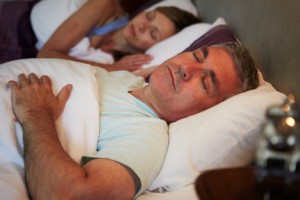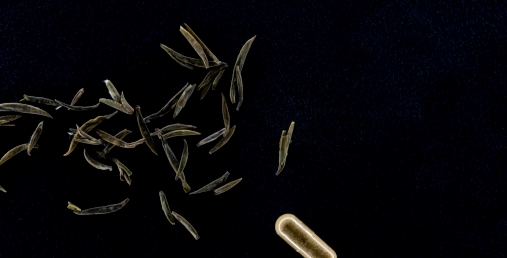How To Enjoy Alcohol While Still Maintaining A Healthy Lifestyle
While working as the nutritionist of NBC's "The Biggest Loser," I had the opportunity to work with other members of their medical expert team, including Dr. Michael Dansinger. Dr. D is an internationally-recognized authority on dietary and lifestyle counseling for weight loss and prevention of obesity-related medical problems. He is an assistant professor at Tufts University School of Medicine in Boston as well as a scientist with the USDA Nutrition Research Center. Dr D and I co-wrote the eating plan for the show, which was also the foundation for the entire series of BL books, menus and recipes.
Recently, I asked Dr. Dansinger to comment on a really popular question: Can I drink alcohol while I'm trying to lose weight? Here is his response:
"Many people aiming to reduce body fat would like to enjoy alcoholic beverages on occasion. Unfortunately, alcohol is not favorable for weight loss, and should therefore be considered to be an occasional treat or avoided altogether. There is a general concensus that alcohol in moderation, especially red wine, has favorable effects on heart disease risk; however, I recommend minimizing alcohol consumption when fat loss is the primary goal. Alcoholic beverages contain calories, stimulate appetite and reduce inhibitions and willpower.
"Low carb beers are more favorable than regular beers. Low carb beers are comparable to regular beer diluted with water. A similar effect can be achieved with mixed drinks diluted with a calorie-free or low-calorie beverage.
For people aiming to lose only a little weight, the light or low carb beers, small glasses of wine, and diluted low calorie alcoholic drinks are the most favorable options. For lean people who want the health benefits of alcohol, I agree with the official government recommendations: 2 ounces of alcohol per day for men, and 1 ounce per day for women.
As always, please drink responsibly. Do not drink and drive. Do not drink if you're pregnant."
I agree with Dr. Dansinger. And while I supported the stance of the show, which did not allow for any alcohol in a weight loss plan for those with lofty weight loss goals, my approach is necessarily different for my private clients who are either on maintenance or have smaller weight loss goals.
I do live in Napa (California), after all. If I told my private clients that they couldn't have any wine, I may not have many clients. For me, it's key to focus on client preferences and create a personally-tailored lifestyle plan that will be sustainable. That doesn't mean drink all you want, however.
Whether I'm meeting with a private client or teaching a class, I like to provide a few important pointers to any wine lovers.
1. If you have a habit of pouring yourself a glass of wine when you finish your work for the day, be aware of how much wine (and how many calories) are contained in your favorite glass.
Here's how: Take your usual wine glass from the cupboard and fill it with 4 ounces of water. Now take note of the level in your glass -- you are looking at about 100 calories. If your glass is large, it may not look very full -- all the more reason to be aware of how many calories are in your glass.
2. If you dine out regularly, and order a glass of wine at your favorite restaurant, ask the server or bartender how many ounces they use in their regular pour. In Napa, 5 ounces (or 125 calories) is typical. Most restaurants have a standard size pour and once you know you'll be able to factor this into your calorie count for the day.
3. If you need to cut back a little on your alcohol intake, be sure to have a glass of water after your first (or second glass) which will help you fill up AND slow down!
4. Remember that if you are accustomed to having a couple glasses of wine (or cocktails) before, during and/or after each meal the calories add up quickly and can easily equate to having two full dinners. Many of us focus too much on the calories we eat while forgetting that our beverage calories can add up even more quickly.
Cheryl Forberg, RD is a James Beard award-winning chef, former nutritionist for NBC's "The Biggest Loser" and NYT bestselling author. Her latest book is Flavor First (Rodale). She lives on a farm in Napa, California. For plenty of scrumptious recipes, check out her website or follow her on Twitter or Facebook.
-
Menopause weight gain: Stop the middle age spread
As you get older, you might notice that maintaining your usual
-
Types Of Weight Loss Supplement
Weight loss supplement are natural or chemical additives that help the
-
Proven Advice For Safe And Effective Weight Loss
Sometimes losing weight is not easy. This can be for a variety o
-
All About Fat Loss Gels
Another popular method of fat loss is by use of fat loss creams and tr
-
Get That Perfect Beach Body with These Tips
It has been a long winter, but summer will be here in the blink of any
-
Four Healthy Tips for the Work Week
Staying on track with your diet and making healthy choices during a
- DON'T MISS
- Lifestyle Vs GymWhich Is Best To Lose Weight
- Lipo 6 – The Most Effective Fat Burners
- My Favorite Recipes
- How To Not Get Fat In Five Easy Steps
- Top 5 Valentines Day Gift Mistakes
- Lose Weight Rapidly With A Natural Fat Burner
- A Diet Made For You Will Make All The Difference
- How to Program Your Mind to Lose Weight Effortlessly
- Healthy diet: Is glycemic index the key?
- Kickstart Your Fat Burning Metabolism For 5 hours




